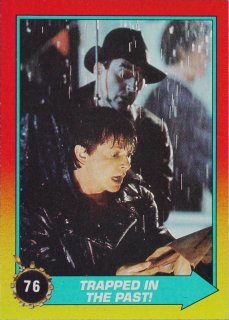
It can be a very odd experience living in the USA (“Uppercrust Sideria of Utilitarios” is one name Joyce gives to it.)

I think McLuhan had some notions about what was coming when he was writing in the 60s.
I am seeing him as a very astute blind man who had hold of an elephant in places that are still hidden from the rest of us blind men.

It is tricky reading him. He speaking from the past. He makes what seem like silly mistakes to one who reads him now. His language goes from stilted to clear to eloquent.

I think he mastered the beauty of a synoptic sentence that holds an insight.

Obviously, the “media is the message” which more properly would be the media is PART of the message. It is foolish to completely put aside content and context and the subjective and objective response we have to our technology. But it’s equally foolish to assume we understand the inherent changes and effects worked upon us by it.
Besides the necessary limitation of speaking from one point in history, McCluhan often draws wild conclusion about what caused what. An example that pops to my mind is that the “flowering of jazz in the twenties was a popular response to the highbrow richness and orchestral subtlety of Debussy-Delius period.”

Wrong.
I think it was a mutual influence and if anything Debussy and Satie borrowed from the jazz idiom.
This is one of many flawed observations that a reader of McCluhan in the 21st century must guard against. I have many of them marked in my copy of Understanding Media.
The other thing to guard against is McLuhan propensity to see an subject as either one way or the other. While insisting on the multiplicity and variety of evolving human technology, he falls again and again into the actual fragmenting (and compartmentalization) he is preaching against.
But instead of railing about his weaknesses, I am more interested in those insights historical and philosophical that seem to still elude the thinking about technology and the arts that I read. Or at least most of it.
Here are some random examples:
“Our private and corporate lives have become information processes because we have put our central nervous systems outside us in electric technology.”
Speaking of T.S. Eliot’s work:
” The Love Song of J. Alfred Prufrock gets much of its power from an interpenetration of film form and jazz idiom. But this mix reached its greatest power in The Wasteland and Sweeney Agonistes. Prufrock uses not only film form but the film theme of Charlie Chaplin, as did James Joyce in Ulysses. Joyce’s Bloom is a deliberate takeover from Chaplin (“Chorney Choplain,” as he called him in Finnegans Wake. And Chaplain, just as Chopin had adapted the pianoforte to the style of the ballet, hit upon the wondrous media mix of ballet and film in developing his Pavlovalike alternation of ecstasy and waddle.” (!)


“The village had institutionalized all human functions in forms of low intensity. In this mild form everyone could play many roles. Participation was high, and organization was low. This is the formula for stability in any type of organization.”
I can’t resist adding this little gem in which McLuhan connects the development of the phonograph to the loss of singing in the lives of people in the USA. I was surprised to read this quotation he draws on from John Philip Sousa.
“With the phonograph vocal exercises will be out of vogue! Then what of the national throat? Will it now weaken? What of the national chest? Will it now shrink?”
McLuhan goes on: “One fact Sousa had grasped: The phonograph is an extension and amplification of the voice that may well have diminished individual vocal activity, much as the car had reduced pedestrian activity.”
1. Glasto musings – Susan Tomes: Pianist & writer
I regularly read this woman’s astute blog. I loved this quote mentioning Mick Jagger in this one: “It should feel as if Sir Mick and I are in the same profession: music. But sometimes it doesn’t.”
2. Music Man, Merry Band – NYTimes.com
This is one of two “happy links” I mentioned yesterday. I love it that a bunch of jaded classical and broadway musicians find time to just do music for the love of doing it. Very cool.
3. A Free Miracle Food! – NYTimes.com
This is the other “happy link.” One thing I particularly like about this story is the way the journalists offered a starving baby and her mother a ride to the hospital. I often wonder how journalists covering the tragedies of the world don’t just throw down their equipment and start helping.